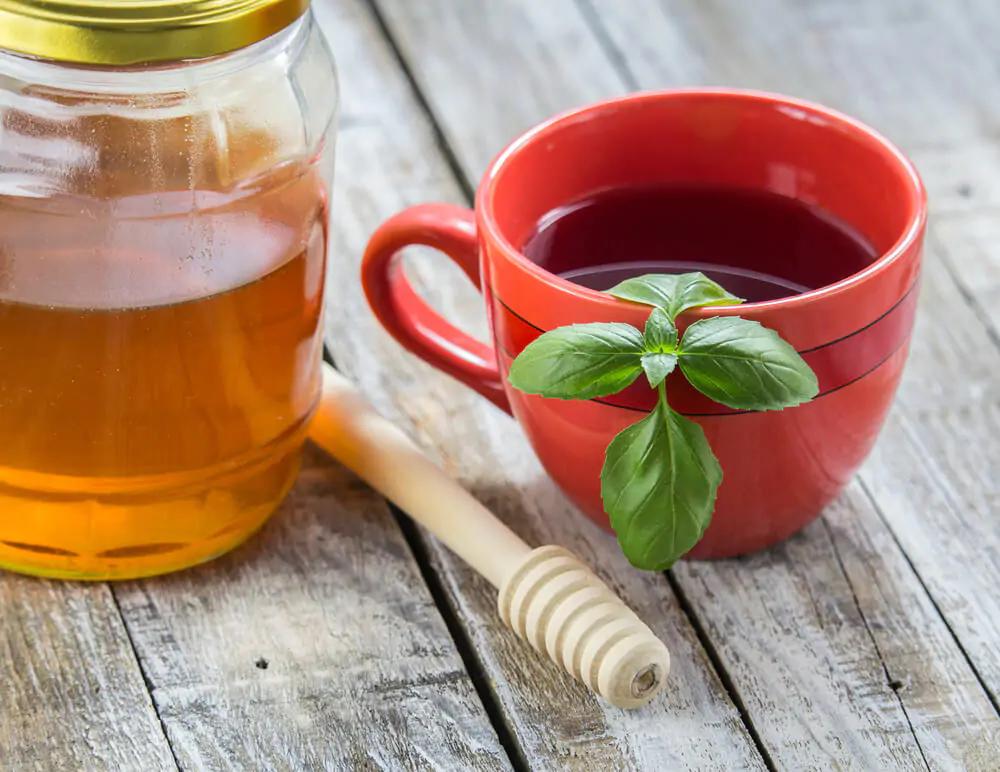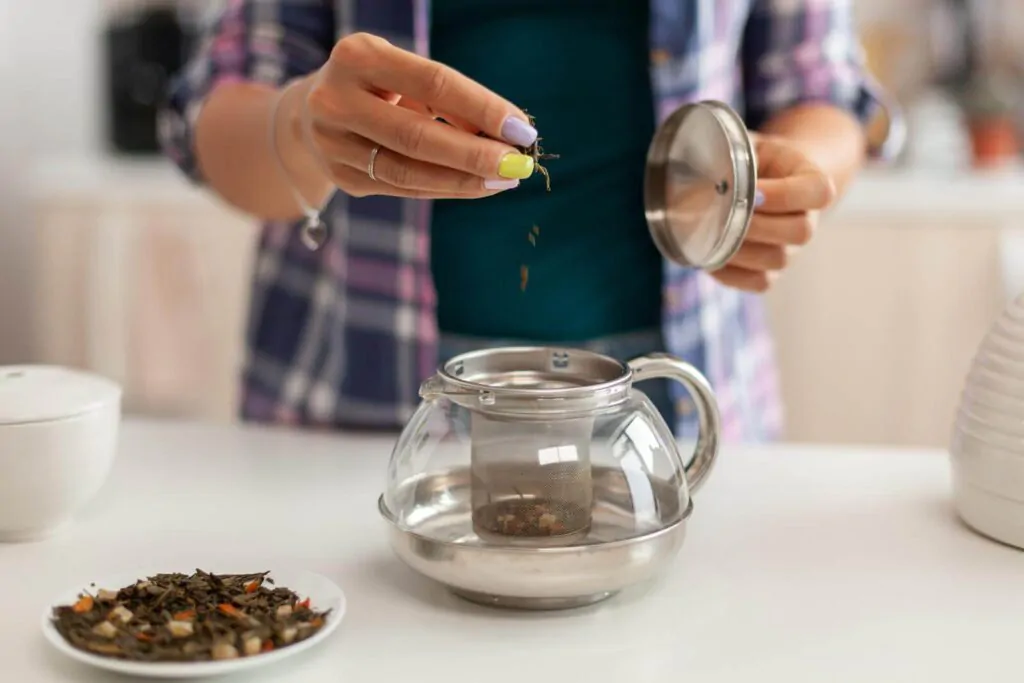Holy basil isn’t your go-to pizza garnish – it’s a deliciously sweet herb that makes for an excellent cup of tea. Learn what is holy basil tea and what benefits it holds.

The world of teas has never been more fascinating – you have access to thousands of incredible fruity, floral, and citrusy teas, pink teas, even color-changing teas that are finished off with delicious creamers toppers and garnishes. Despite all the varieties, most tea enthusiasts will agree that nothing can substitute a good old-fashioned herbal beverage such as holy basil tea.
Much more than simple hot leaf juice, holy basil tea is a rich, deeply-flavored tea that needs no sweeteners or additives (although it handles them perfectly well).
Learn what holy basil tea is all about and discover why it’s known as the Queen of the Herbs.
Holy Basil Tea – An Aromatic, Sweet Herbal Tea
You’ve probably grown accustomed to the taste of the sweet basil that’s so commonly used in Mediterranean cuisine – slightly sweet, minty, and peppery. That’s not what holy basil is.
Native to India, holy basil, also known as tulsi, has an entirely different flavor and aroma. It’s spicy, musky, warm, with hints of cloves and licorice, making it the perfect ingredient for your herbal tea.
It comes in three varieties, each with its unique flavor profile:
- Green leaf tulsi (also known as Rama tulsi): Native to India, Nepal, China, and South America, green leaf tulsi has a mild, spicy flavor with stronger hints of cloves;
- Purple leaf tulsi (also known as Krishna tulsi): Growing throughout India, purple leaf tulsi is more pungent and peppery, with a fresh, crisp taste that will give you a boost of energy in the morning;
- Wild tulsi (also known as Vana tulsi): Harvested from the foothills of the Himalayas, wild tulsi is the sweetest of the bunch, with a flavor akin to star anise.
Regardless of which variety you go for, holy basil tea responds well to all creamers, sweeteners, spices, and toppers, so you can customize your tea to suit your specific flavor preferences.
The Spiritual Significance of Holy Basil Tea in Hinduism
It’s not only the rich flavor that sets holy basil apart from other teas. Being used for medicinal and religious purposes for centuries, holy basil has quite a history.

Regarded as the threshold between heaven and earth in Hindu religions, it’s said that Brahma, the creator god, inhabits its branches. At the same time, Vishnu, Shiva, and other deities reside in its stems and leaves. Hence, holy basil became known as the Queen of the Herbs.
Virtually every Hindu household will grow a holy basil shrub and, according to legend, receive grace from Vishnu for it. You might also be interested in learning about mugwort tea.
Health Benefits of Holy Basil Tea
While some holy basil tea’s medicinal benefits are nothing more than old wive’s tales, many are scientific facts. Holy basil is packed with vitamins and minerals that help improve your overall well-being.
Holy Basil Tea Can Alleviate Anxiety
Holy basil has anti-anxiety and antidepressant properties that could help alleviate some of mood disorders’ physical and mental symptoms. It can lower your stress levels, enhance your mood, and even help you overcome anxiety-induced insomnia.
Of course, it’s not a cure for mood disorders, nor is it a substitute for your prescriptions, but it could help you feel calmer.
Ease Infections and Inflammations
Holy basil tea has significant anti-inflammatory, antibacterial, and antiviral properties that can help reduce infections and inflammations. It’s precisely these properties that have made holy basil such a sacred healing plant in Hindu religions.
Lower Blood Sugar Levels
Although more evidence is needed to support this claim, research has suggested that holy basil could help manage blood sugar levels. It can boost your metabolism, help you break down carbs and fats, and even help you avoid weight gain and insulin resistance, two of the most common symptoms of diabetes.
Alleviate Respiratory Issues
Holy basil’s antibacterial and antiviral properties could prove to be beneficial against respiratory issues. It can boost your immunity, relieve cough, and even help you get rid of phlegm, allowing you to overcome congestion and open up your breathing pathways.
How to Brew Holy Basil Tea

If you want to enjoy all the potential benefits of holy basil tea, it’s always best to use fresh ingredients. You can quickly grow your holy basil at home (even in an apartment) and harvest the leaves when you need to use them. Otherwise, you can always use loose dried leaves – the only difference will be the flavor, which will be slightly more muted.
In any case, brewing holy basil tea couldn’t be easier. Bring a cup of water to a boil, pour it over one teaspoon of loose leaves (and any spices you’d like), and keep it all covered for five to ten minutes. Strain the leaves, add sweeteners and creamers to taste, and enjoy your perfect cup of holy basil tea.
If you liked this post, you might also enjoy our guide on London fog tea.

